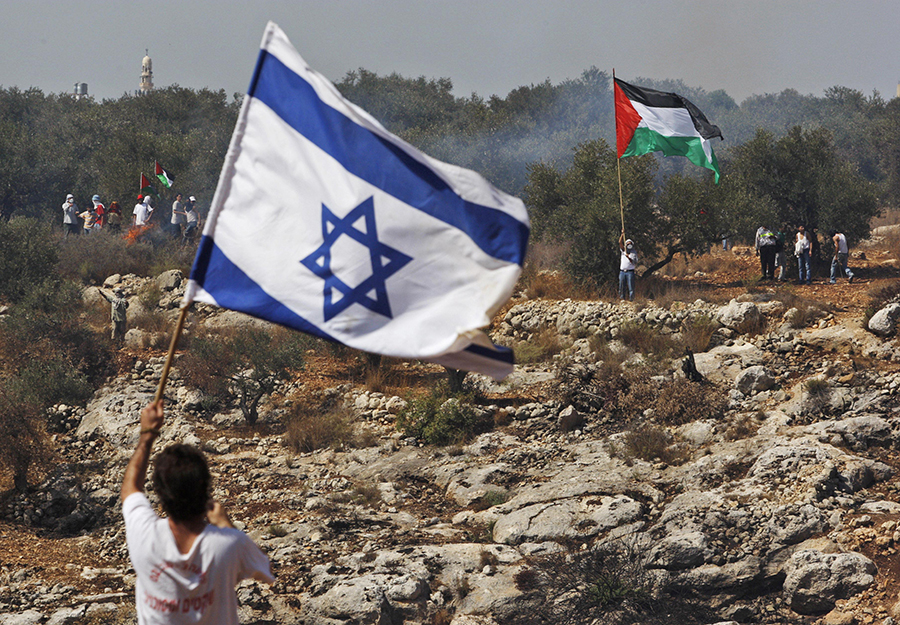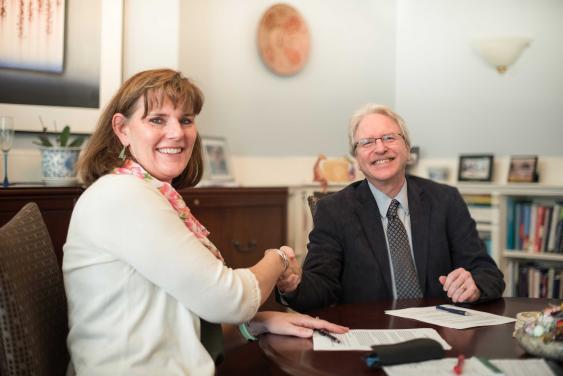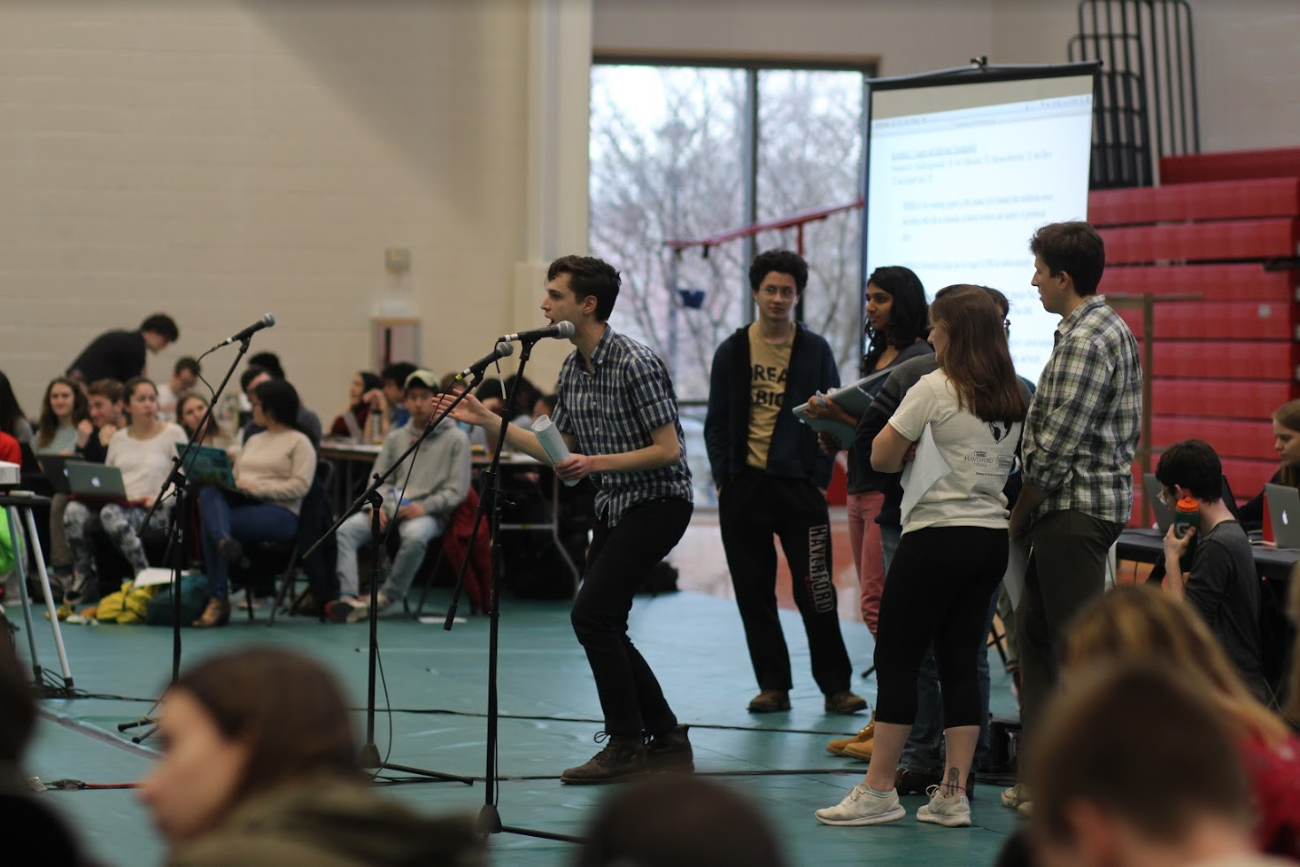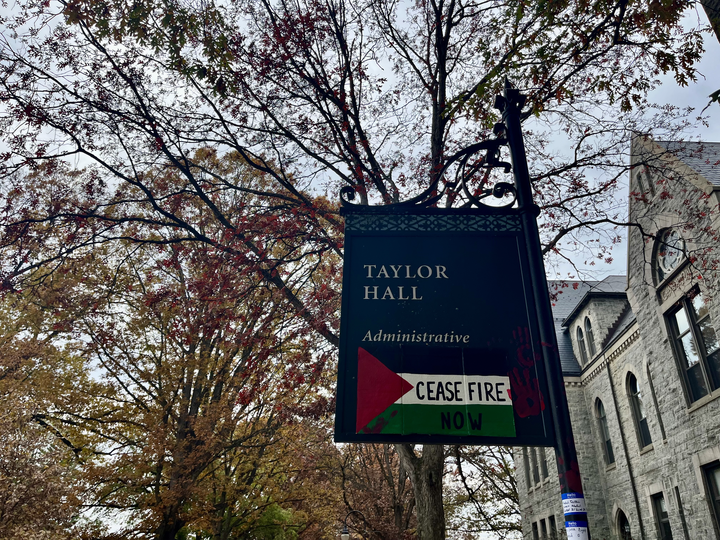Editor’s Note: This article was written before the November 9 email from Landau, which was sent to the Haverford Student body.
On the evening of November 1, directly following the 12 hour sit-in in Taylor Hall, several organizers from SJP, sit-in participants and other students gathered in Hilles Hall on the Haverford Campus for a teach-in by Haverford student Ally Landau, who had organized the event in order to discuss differing opinions on what she termed the Israel-Palestine conflict. “I was a bit aggravated by the administration’s response,” she said, “and that made me want to host a bit more of a discussion and provide my perspective on things.” Though not widely advertised, the event drew enough attendees to nearly fill a small lecture hall.

Landau began with a slide presentation on a (subjective) history of Israel, and then moved on to the thesis point of her presentation: “I personally believe in a two-state solution,” she said, “but the main point I want to make is that it’s possible to criticize the Israeli government and their action while also recognizing existence of state of Israel and not denying its right to exist as a sovereign state.”
The presentation particularly emphasized the designation of Hamas as a terrorist organization by the US, and rising rates of antisemitic acts. Landau cited personal knowledge of a friend at American University seeing swastikas being painted on dorm room doors, and asserted that though she has not heard of or experienced any overt antisemitism at Haverford, Chabad House posters have been torn down consistently since October 7. The latter point has not been fact checked.
Landau’s final statement judged that perhaps, if there had been a state of Israel during the Holocaust, Jewish casualties would not have been so high.

At the conclusion of her slide presentation, Landau invited Kinaan Abdalhamid, a Palestinian student at Haverford who lived under Israeli military occupation in the West Bank for most of his life, to the front to give his own perspective.
“Most of what you said was factually correct,” Abdalhamid began, but noted first and foremost that using the language “Jewish perspective vs Palestinian perspective” is extremely harmful. He pointed out that this rhetoric builds anti-Palestinian sentiment among all Jewish people, and equates the state of Israel with the Jewish identity.
Abdalhamid continued, “I condemn Hamas. But we also need to acknowledge historical context and why the rise of Hamas was inevitable.” Abdalhamid, along with attendee and senior M.K., then gave further historical context on the funding of Hamas by the state of Israel during the Cold War: “It was an effort to Orientalize us, this creation of an Islamic counter-balance to communism.” Abdalhamid emphasized that the Israeli state is innately an antisemitic project, as post-World War II, it funneled European Jews into the area that is now Israel, displacing Palestinians simply because Western leaders didn’t want Jews living among their people.

“I don’t want to justify killing,” Landau repeated, “However, I do believe that the establishment of the state of Israel is right.” She reasserted the argument that having a safe haven for Jewish people would be a positive thing, a guard against experiencing antisemitism.
Abdalhamid replied, “If the world is so evil that it causes so much antisemitism that a Jewish state is necessary, I invite you to fight against that world with me.”

In that vein, though points of disagreement about the two-state solution and Israel’s right to the land prevailed between Landau and the majority of the attendees, Abdalhamid strongly emphasized the need for love and community among persecuted people, Israeli and Palestinian alike. He said, “The same people who oppressed your people during World War II are oppressing us now … let’s fight this war together.”
Following the event, Landau told a reporter from The Clerk, “I think [the conversation] was extremely respectful. l know that my belief system is not the majority on campus but I really appreciated everyone coming and listening to me first before having a conversation and asking questions, and so obviously there’s a ways to go and it was difficult for me, but I’m happy I did it.”




